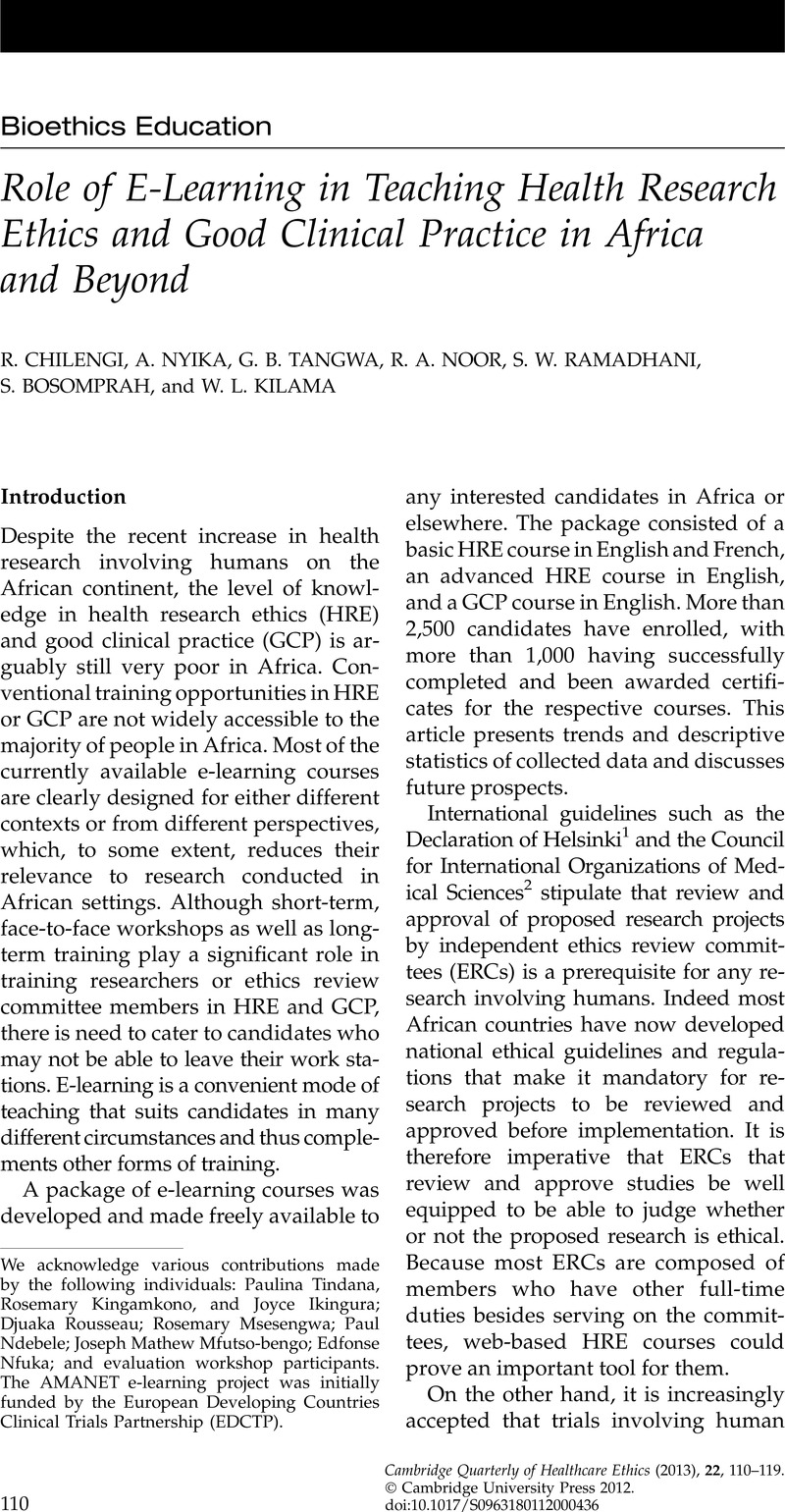No CrossRef data available.
Published online by Cambridge University Press: 04 December 2012

1. Declaration of Helsinki. World Medical Association. Ethical Principles for Medical Research Involving Human Subjects. Edinburgh: World Medical Association; 2008.Google Scholar
2. Council for International Organizations of Medical Sciences (CIOMS). International Ethical Guidelines for Biomedical Research Involving Human Subjects. Geneva: Council for International Organizations of Medical Sciences; 2002.Google Scholar
3. International Conference on Harmonization (ICH). Good Clinical Practice (GCP) ICH Harmonized Tripartite Guideline on Good Clinical Practice. Geneva: World Health Organization; 1996Google Scholar, ICH/GCP, E6. (R1).
4. Levine, RJ.Institutional review boards: A crisis in confidence. Annals of Internal Medicine 2001;132(2):161–3.Google Scholar
5. Sugar, AM.The crisis in local institutional review boards. Annals 2002;136:410–7.Google Scholar
6. Burman, WL, Reves, RR, Cohn, DL, Schooley, RT.Breaking the camel’s back: Multicenter clinical trials and local institutional review boards. Annals of Internal Medicine 2001;134:152–7.CrossRefGoogle ScholarPubMed
7. Siegfried, N, Clarke, M, Volmink, J.Randomised controlled trials in Africa of HIV and AIDS: Descriptive study and spatial distribution. British Medical Journal 2005;331:742–7.Google Scholar
8. Hyder, AA, Wali, SA, Khana, AN, Teoh, NB, Kass, NE, Dawson, L.Ethical review of health research: A perspective from developing country researchers. Journal of Medical Ethics 2004;30:68–72.Google Scholar
9. See note 8, Hyder et al. 2004.
10. Kirigia, JM, Wambebe, C, Baba-Moussa, A.Status of national research bioethics committees in the WHO African region. Journal of Medical Ethics 2005;6:10–16.Google Scholar
11. Kass, NE, Hyder, AA, Ajuwon, A, Appiah-Poku, J, Barsdorf, N, Eldin Elsayed, D, et al. The structure and function of research ethics committees in Africa: A case study. PLoS Medicine 2007;4:e3. doi:10.1371/journal.pmed.0040003.Google Scholar
12. Nyika, A, Kilama, WL, Chilengi, R, Tangwa, GB, Tindana, P, Ndebele, P, et al. . Composition, training needs and independence of ethics review committees across Africa: Are the gate-keepers rising to the emerging challenges? Journal of Medical Ethics 2009;35:189–93Google Scholar. doi:10.1136/jme.2008.025189.
13. Kilama, WL.Ethical perspective on malaria research for Africa. Acta Tropica 2005;95:276–84.Google Scholar
14. See note 12, Nyika et al. 2009.
15. See note 12, Nyika et al. 2009.
16. Ezekiel, JE, Wendler, D, Grady, C.What makes clinical research ethical? JAMA 2000;283(20):2701–11.Google Scholar
17. See note 16, Ezekiel et al. 2000.